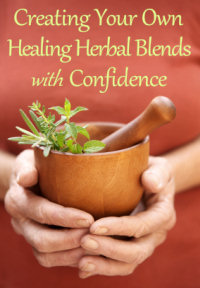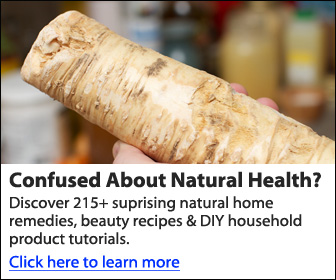Try Herbal Teas! Tea has been used for thousands of years to soothe and ease a variety of health problems. In fact, tea is the most consumed beverage in the world, aside from water. Herbal teas have also proven to be a good choice for those searching for a natural heartburn herbal remedy.
Black, green and red teas contain polyphenols which is an antioxidant that helps to protect our body from free radical damage. The polyphenols found in tea have been shown to provide anti-cancer properties through numerous studies. Additionally, these same studies have suggested that drinking several cups of tea each day may also reduce the risk of gastric and esophageal cancers.
But not all teas are created equal. The leaves from black, green and red teas come from a warm-weather evergreen tree known as Camellia sinensis. However, what we consider “herbal teas” do not come from this tree at all. In fact, herbal teas aren’t really teas but are infusions called “tisane” that are made from various herbs, flowers, roots, and other parts of some plants. Tisane does not contain as much polyphenols as true tea does, although they can be very beneficial in other ways.
When looking at how to get rid of heartburn, you may find some “herbal teas” are more advantageous in regards to easing heartburn symptoms, acid reflux and other gastrointestinal disorders, than others. Unfortunately, some teas may aggravate these conditions rather than relieve them, so choose your herbal tea remedy wisely.
So, if you are looking for a way to relieve heartburn symptoms or other problems associated with digestive orders, such as GERD, here are a few herbal teas you may want to consider trying:
Chamomile Tea
This is a very popular herbal tea used to treat a variety of health concerns such as indigestion, heartburn, anxiety, PMS, sleep disturbances and easing anxiety. It also helps to relieve the inflamed or irritated mucus membranes of the digestive tract (good for acid reflux sufferers) and helps to promote normal digestion. Used topically, it can also promote the healing of minor skin irritations and scrapes. However, since chamomile is found in the ragweed family, it could cause a reaction to anyone who has allergies to ragweed.
Marshmallow Tea
No, not the big fluffy things you roast over the fire. In this case, it is the root that is used in herbal medicinal products. When taken internally, such as in a tea, marshmallow is known to ease bladder infections, and coat and soothe the gastrointestinal tract, sore throats, ease respiratory problems and promote healing of the urinary tract. It can also be purchased as a topical formula for use on burns, scrapes and inflammatory skin disorders.
Peppermint Tea
The mint leaves are used to brew a delightfully refreshing herbal tea that contains no caffeine. However, there are conflicting reports on whether to use peppermint in any form when suffering from heartburn and/or acid reflux.
In some cases, it is said to ease stomach and digestive problems. The oil within the peppermint helps to stimulate the flow of bile to the stomach and relieve gas pains, calm heartburn, and settle an upset stomach and nausea. On the other hand, studies have also indicated that drinking peppermint, spearmint or other strongly spiced teas actually causes the LES to relax even more, resulting in additional acid reflux. The LES (lower esophageal sphincter) is a one-way valve that separates the esophagus from the stomach and allows food and liquid to enter the stomach. When this sphincter doesn’t close properly or is relaxed enough, food, liquid and acid can reflux back up into the esophagus causing heartburn. Since the reports are conflicting on how effective peppermint tea may be in aiding heartburn relief, you may just wish to try it for yourself and see which group you fall into.
Aloe Vera Juice
Although this is not a tea, I’ve included it in this article as Aloe Vera can be taken in liquid form. The liquid is made from the gel found within the Aloe Vera leaves and works to help soothe the digestive system plus protect against ulcers. In topical form, it is great to use on minor burns, sunburn, cuts, and scalds.
Many plants and herbs can be made into herbal teas that have a variety of beneficial properties. The above list should give you a starting point on some of the more favorable beverages that help with heartburn and other digestive orders.
A note about peptic ulcers: Many teas can aggravate the healing of peptic ulcers. Chamomile, however, seems to have a soothing effect. It contains a high flavonoid called Apigenin which helps to inhibit the growth of Helicobacter Pylori, the organism responsible for causing peptic ulcers.





















Leave a Reply
Your email address will not be published. Required fields are marked (required)